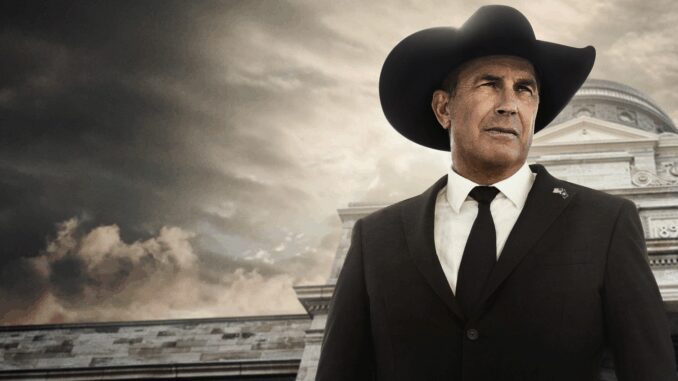
The vast, untamed expanse of the Dutton ranch, where the sky meets an endless horizon and the very air whispers tales of struggle and legacy, serves as more than just a setting for Yellowstone. It is a character in itself, embodying the rugged spirit of the American West. And at its heart, as immovable and iconic as the Tetons themselves, stands Kevin Costner as John Dutton. So when whispers of his potential exit from the critically acclaimed series began to spread, they didn't just ripple through the entertainment industry; they struck at the very bedrock of a cultural phenomenon, prompting Costner himself to step into the fray, not with a roar, but with the quiet, measured dignity characteristic of the man and the myth he so convincingly portrays.
To understand the fervor surrounding Costner's rumored departure is to understand the almost mystical alchemy that occurs when an actor becomes inextricably linked with a role. Costner, with his weathered gravitas and an innate understanding of the stoic, land-bound hero, doesn't just play John Dutton; he is John Dutton. His cinematic history, from the windswept prairies of Dances With Wolves to the mythic baseball fields of Field of Dreams, has consistently placed him at the heart of America's rugged individualism. In Dutton, fans found a complex, flawed, yet undeniably compelling embodiment of tradition, power, and the fierce protectiveness of one's own. The idea of Yellowstone without Costner felt like the ranch without its patriarch—unthinkable, an empty throne awaiting an impossible successor.
The rumor mill, fueled by the insatiable appetite of the digital age, quickly transformed speculation into a gnawing uncertainty. Reports of scheduling conflicts, contractual disputes, and creative differences became headline fodder, each piece of unverified information fanning the flames of fan anxiety. Social media became a digital prairie fire, with theories and lamentations spreading rapidly. For devoted viewers, this wasn't just about a star leaving a show; it was about the potential disruption of a meticulously crafted universe, the abrupt severing of a bond with characters they had invested deeply in. The very notion of John Dutton being written off, or worse, recast, felt like a betrayal of the immersive reality that Yellowstone had so powerfully built.
It was into this swirling vortex of speculation that Kevin Costner, with characteristic restraint, chose to finally address the rumors. His words were not a fiery rebuttal or an angry denouncement, but a calm, reasoned explanation. He spoke of the demanding production schedule, his commitment to other projects, and the inherent complexities of long-term contracts. There was no grand pronouncement, no dramatic flourish, but rather the measured tone of a man setting the record straight, much like John Dutton himself would clear the air in a contentious ranch meeting. His response, delivered not through a calculated press release but often in unscripted moments, underscored his genuine affection for the show and its fans, even as it implicitly acknowledged the challenging realities of his demanding career.
In addressing the rumors, Costner did more than clarify his professional standing; he highlighted the delicate balance between the art of storytelling, the business of Hollywood, and the passionate engagement of an audience. His presence in Yellowstone is a cornerstone, and his very act of speaking on the matter, even if to suggest a potential winding down of his involvement, was a nod to the deep connection viewers feel. The illustrative essay here is not just about a celebrity and a TV show, but about the unique phenomenon where a fictional world becomes so real that the fate of its central figure reverberates through the lives of millions. As the dust slowly settles on the Yellowstone saga, Kevin Costner's measured words serve as a poignant reminder of the enduring power of a singular performance, and the profound impact it can have, not just on the screen, but in the hearts of those who watch.
